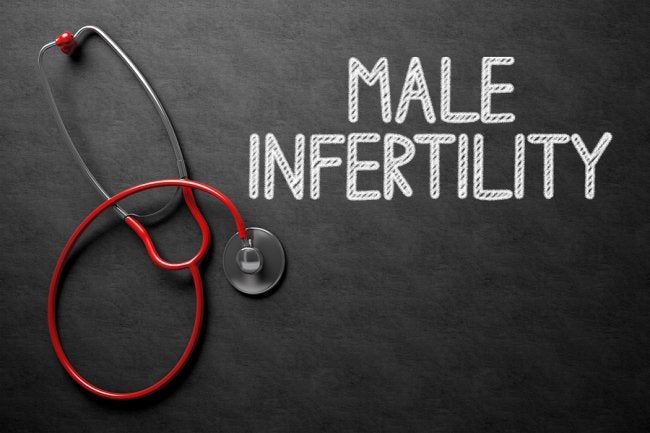-
What Women Should Know About Urinary Tract Infections

Urinary tract infections (UTIs) are caused by bacteria that can proliferate in the bladder, urethra, ureters, or kidneys. In most cases, UTIs affect the urethra and bladder. Since women are much more likely to develop UTIs than men, it’s helpful to learn how to detect the signs and symptoms, and to know when to see a urologist.
Causes and Risk Factors
A UTI can develop when bacteria enter the urethra and spread to the bladder. Cystitis is the infection of the bladder, and urethritis is the infection of the urethra. In addition to having female anatomy, other risk factors of UTIs include:
- Being sexually active
- Having a new sexual partner
- Going through menopause
- Using diaphragms or spermicidal agents for birth control
- Having kidney stones
- Using a urinary catheter
- Having a suppressed immune system
- Having a recent pelvic surgery
Patients should note that, although most UTIs affect women, it is still possible for men to develop these infections—particularly if they need to use a urinary catheter.
Signs and Symptoms
Urinary tract infections generally make themselves known by causing a painful, burning sensation during urination . Women sometimes report suffering from pelvic pain, and urinating frequently, but in small amounts. In some cases, the urine may look reddish or pinkish, which indicates the presence of blood. If the UTI involves the kidneys, women should seek emergency care, as permanent kidney damage or even death can result from an untreated kidney infection. Kidney infections can cause:
- High fever
- Shaking and chills
- Nausea and vomiting
- Pain of the side and back
Treatment and Prevention
Antibiotics are the primary UTI treatment, although some women might also be prescribed a medicine to control the pain during urination. Severe UTIs, such as those that involve the kidneys, might require hospitalization and intravenous antibiotics. Women who suffer from recurrent UTIs can consult a urologist to discuss a preventive approach, which may include the following:
- Wiping from front to back
- Urinating shortly after sex
- Drinking plenty of water
- Avoiding feminine products that irritate the area
Urinary tract infections can be painful, but you can find the rapid relief you need at Urology Associates, P.C. In addition to UTI treatment at our locations throughout Tennessee, our dedicated, courteous team provides comprehensive sexual health evaluations and treatments. Call (855) 901-1338.
-
A Look at the Use of HIFU for Prostate Cancer Treatment
High-intensity focal ultrasound (HIFU) is an emerging treatment for prostate cancer. As the name suggests, it involves directing high-frequency sound waves at the tumor. The sound waves generate heat, which destroys the cancer cells. You can learn more about HIFU by watching this featured interview with a urologist at Urology Associates, P.C.
Dr. Robert Barnett explains the basics of how HIFU works to treat prostate cancer. Clinical research demonstrates the safety and effectiveness of this treatment and it is currently available at the Urology Surgery Center. Only a select group of urologists perform this procedure, and includes Dr. J. Matthew Hassan , and Dr. Charles Eckstein .
The compassionate doctors and support staff at Urology Associates, P.C. go the extra mile to connect our patients in Nashville with prostate cancer treatments that are right for them. Contact us at (855) 901-1338 with your questions about our urology services.
-
Spotlight on Prostatic Intraepithelial Neoplasia

After visiting a urologist for a prostate biopsy, some men receive a pathology report that mentions the presence of prostatic intraepithelial neoplasia (PIN). Continue reading for more information about PIN in prostate cells and to learn about the basics of this diagnosis.
Overview
PIN refers to abnormal cells that are taken during a prostate biopsy, and it can be best described as a precancerous condition. If your pathology report mentions that PIN was found, then this means that changes were seen in the appearance of the prostate cells. However, these abnormal cells do not look as if they are growing into other areas of the prostate like cancer cells would.
Types
If PIN is detected in the cells taken during your prostate biopsy, then it will be classified as either low-grade or high-grade. Low-grade PIN means that the patterns of the prostate cells appear nearly normal. The presence of high-grade PIN indicates that the prostate cells appeared more abnormal.
Occurrence
PIN can begin to show up in prostate cells of men that are in their 20s. Also, it’s not unusual for men to develop low-grade PIN at a young age that does not progress to prostate cancer. In fact, it’s unclear to urologists exactly what link there is between low-grade PIN and prostate cancer. On the other hand, if high-grade PIN is detected in your prostate cells, then the chance that there is cancer in another area of your prostate is about 20%.
Follow-Up
If PIN is detected in your biopsy, then speak with your urologist about what steps to take next. For most patients, even high-grade PIN does not progress to prostate cancer. For this reason, there may be no steps for you to take before your next regular biopsy. If you’re a patient with a higher risk of prostate cancer, then your urologist may recommend a repeat biopsy.
Are you looking for a compassionate and experienced urologist in Nashville? If so, then please come and see us at Urology Associates, P.C. Call (855) 901-1338 for information about our services or to schedule your appointment.
-
What Are the Risk Factors for Male Infertility?

Concerns about sexual health and infertility are more common among men than you might think. Consider talking to a urologist if you and your partner have been trying to get pregnant without success. The doctor may assess your risk factors of male infertility, which can include underlying medical problems such as sickle cell disease, tumors, and obesity. Men are also at a higher risk of infertility if they have a history of undescended testicles, testicular trauma, major pelvic or abdominal surgery, or long-term exposure to environmental toxins.
Sometimes, treatments for medical conditions can affect a man’s fertility. Let your doctor know about all of the medicines you’re taking, and whether you’ve previously had cancer treatments. Expect the urologist to ask you some questions about your lifestyle. The use of tobacco, alcohol, and some illicit substances can increase the risk of infertility.
Men in Nashville can find male infertility treatments that are effective and safe at Urology Associates, P.C. Call (855) 901-1338 to request an appointment with one of our urology specialists.
-
Is a Penile Prosthesis Right for You?
Penile prostheses are stable and reliable prosthetic devices used in urology, and they are implanted in men who suffer from erectile dysfunction. Please watch this video to learn more about penile prostheses and whether one is right for you.
The purpose of a penile prosthesis is to provide an erection, and it does not improve the cosmetics or sensitivity of the penis. Sexual dysfunction is common among men with urological problems, such as bladder cancer or prostate cancer, as well as those who have diabetes or vascular disease. Penile prostheses offer patients a stable way to manage this problem long-term.
If you would like to improve your sexual health with ED treatment in Nashville , then look no further than Urology Associates, P.C. To learn more or make an appointment, please call (855) 901-1338.
-
Discover the Benefits of MonaLisa Touch

Do you suffer from sexual dysfunction and painful intercourse due to vaginal dryness and other discomforts? If so, then it’s important to realize that it’s common for women to experience vaginal dryness and other changes after menopause, and MonaLisa Touch is a treatment option that may improve your sexual health by providing long-lasting relief. Keep reading to learn about the benefits of MonaLisa Touch.
Simple Procedure
If you’re like many women who experience vaginal discomfort due to a decline in estrogen levels, then you may have tried hormone therapy or estrogen creams and found that they were messy or ineffective. MonaLisa Touch is a laser treatment that takes less than five minutes to perform and is clinically proven to be effective. Patients experience no downtime or side effects, the procedure is performed in-office and without anesthesia, and, since 2008, thousands of women have been successfully treated.
Effective Relief
Treatment with MonaLisa Touch can improve your sexual health in many ways. After just a few treatments, many women experience an improvement in their dryness, burning, itching, laxity, and dyspareunia symptoms. Also, it’s common for women to experience some level of symptom relief after a single treatment.
Life-Changing Results
MonaLisa Touch works by delivering gentle, laser energy to the vaginal wall to enhance moisture levels, promote collagen production, restore proper trophic balance, and stimulate a healing response. Many women enjoy positive results in the first one to three treatments, and a typical course of treatment consists of three procedures conducted over a three-month period. MonaLisa Touch offers you an effective solution for vaginal dryness, burning, and itching that can provide you with life-changing results and help you regain your femininity.
At Urology Associates, P.C., our urologists in Nashville offer specialized treatment for women’s sexual health issues. If you’re interested in benefiting from our MonaLisa Touch services, then please give us a call at (615)250-9265 to find out more or to schedule your appointment.
-
Exploring Common Types of Female Sexual Dysfunction

Sexual dysfunction can refer to any sort of problem with any stage of sexual activity—from desire to orgasm. Just like in men, sexual health issues in women may be caused by physical health problems or psychological issues, or by a combination of these. Consider talking to a urologist about your sexual health concerns. Getting the treatment you need may improve your quality of life and restore your intimate relationship. You might even discover that you have an underlying medical condition that needs treatment, such as diabetes or heart disease.
Arousal Disorders
The sexual stimulation that precedes intercourse may be physical, mental, or emotional. Sexual stimulation results in physical changes like vaginal secretions and emotional changes like heightened sexual interest. Women with arousal disorders fail to experience these changes. It’s still possible for physical changes to occur, but without the woman experiencing a heightened awareness of them. Sexual arousal disorders can have psychological causes, such as depression, anxiety, and stress, and they can have physical causes, such as hormonal imbalances and atrophic vaginitis.
Desire Disorders
Female hypoactive sexual desire disorder is generally defined as a lack of desire for sexual activity that causes psychological distress or strained intimate relationships. Like arousal disorders, desire disorders can be caused by both physical and psychological problems. These include depression, low self-esteem, heart disease, diabetes, and cancer.
Orgasmic Disorders
Women with orgasmic disorders might not experience problems with desire or arousal, but they do have difficulty achieving orgasm. Sexual health experts suggest that orgasmic disorders may affect as many as one in every three women . This sexual health problem may stem from older age, prior gynecological surgery, history of sexual abuse, or medical conditions like diabetes.
Sexual Pain Disorders
Some women suffer from pain during or after sex. In menopausal women, atrophic vaginitis is a common cause. Younger women may experience sexual pain disorders because of interstitial cystitis, the involuntary contraction of the vaginal muscles, endometriosis, or a history of sexual abuse.
Women’s Institute for Sexual Health (WISH) at Urology Associates, P.C. provides the compassionate, confidential care that women deserve. Our sexual dysfunction treatments available in Nashville reflect the latest scientific advances in the field. Call us today at (615)250-9265 to request an appointment with a WISH provider.
-
Is Adult Circumcision Right for You?

More than half of boys born in the U.S. are circumcised before the parents take them home for the first time. Usually, parents opt for circumcision for religious, cultural, or health reasons. If you weren’t circumcised at birth, you might decide to consider adult circumcision. Talk to a urologist about the potential benefits and risks before deciding if it’s right for you. The potential risks of adult circumcision include infection and bleeding.
There are several benefits to circumcision, but if you aren’t currently experiencing problems, it might not be worth it to have the procedure. The ease of maintaining good hygiene is generally about the same for circumcised and uncircumcised men. However, if you have difficulties with hygiene, your urologist may recommend circumcision. Circumcision is also associated with a lower incidence rate of urinary tract infections (UTIs). It’s possible, though not definitively proven, that circumcision may lead to a lower risk of penile cancer.
If you’d like to speak with a urologist in Tennessee about adult circumcision , you can call (888) 329-7700. The team at Urology Associates, P.C. routinely treats men for issues such as sexual dysfunction.
-
What Men Need to Know About Urethral Strictures

Both men and women have urethras, which are tubes that transport urine out of the body. There are a few medical problems that can affect a man’s urethra, including urethral strictures. A urethral stricture occurs when the urethra becomes abnormally narrow . If you’ve been diagnosed with this painful condition or you suspect you might have symptoms of it, it’s time to make an appointment with a urologist.
Signs and Symptoms
Urethral strictures can be uncomfortable, causing pain of the lower abdomen and pelvic area, along with painful or difficult urination. Other urinary symptoms can include the following:
- Loss of bladder control (incontinence)
- Urinary urgency
- Increased urinary frequency
- Bloody urine
- Dark urine
- Inability to fully empty the bladder
- Weak urine stream
Along with urinary problems, urethral strictures may result in bloody semen, abnormal urethral discharge, and penile swelling.
Causes and Risk Factors
Men may have urethral strictures because of a disease or injury that affects the area. Some people develop scar tissue after undergoing surgery, which can also cause narrowing of the urethra. It’s possible, although not likely, for urethral strictures to be caused by a tumor. Tumors that grow near the urethra can exert pressure on the tube. Other factors that may increase the risk of urethral strictures include recurrent urethritis, pelvic injury, sexually transmitted disease (STD), and benign prostatic hyperplasia (BPH), which is an enlarged prostate. Additionally, men may have a higher risk of urethral strictures after requiring a urinary catheter or having a cystoscopy.
Treatment Options
In emergency situations, a doctor may place a suprapubic catheter to drain the urine and prevent complications. To treat the underlying cause, it’s possible to widen the urethra during a cystoscopy. The urologist can apply a topical anesthetic before stretching the urethra with a specialized instrument. If this doesn’t work, men may need surgery to correct the problem.
Urology Associates, P.C. is a leading provider of high-quality, patient-focused urology services in Tennessee. Our urologists provide cutting-edge treatments for men with urethral strictures and sexual dysfunction. If your doctor has referred you to a urologist, you can call our office at (888) 329-7700.
-
Introducing a New Treatment for Women’s Sexual Health
Since medications became available to treat low libido, much of the focus on sexual dysfunction has been on male sexual health. But countless women also experience sexual health problems. When you watch this video, you’ll hear from 2 nurse practitioners at the Women’s Institute for Sexual Health (WISH), a division of Urology Associates, P.C.
These ladies explain that almost half of all women in the U.S. experience some type of sexual dysfunction, such as pain during intercourse, vaginal dryness, or low libido. Now, there is finally an FDA-approved medication available to improve sexual health in women. Watch this video to hear about the clinical trials for this medication.
If you would like to speak with a sexual health specialist in Tennessee, you can call (615)250-9265. The WISH clinic at Urology Associates, P.C. provides sensitive, confidential care for women .
Recent Posts
categories
- Uncategorized
- Bladder Cancer
- Women's Sexual Health
- MonaLisa Touch
- Urology
- Urologist
- Erectile Dysfunction
- Kidney Cancer
- Incontinence
- Prostate
- MonaLisa Touch Laser Treatment
- Kidney Stones
- Urinary Tract Infections
- Event
- Sexual Dysfunction
- Testicular Cancer
- Prostate Cancer
- Urology Surgery Center
- urinary incontinence
- vaginismus
- noncoital pain disorder
- Hypoactive Sexual Desire Disorder
- Infographic
- provenge
- Xofigo
- robotic surgery
- hormone replacement
- diabetes
- renal cell carcinoma
- pelvic pain
- hematuria
- sexual health
- chronic testicular pain
- premature ejaculation
- Men's Health Clinic
- Dr. Melvin Seard
- Interstitial Cystitis
- vasectomy
- overactive bladder
- vaginal atrophy
- nocturia
- bladder infections
- urethral strictures
- Acute Epididymitis
- low sex drive
- circumcision
- pelvic floor dysfunction
- Peyronie's Disease
- prostatitis
- female sexual dysfunction
- varicocele
- difficult urination
- low libido
- PSA levels
- male fertility
- penile prosthesis
- prostatic intraepithelial neoplasia
- male infertility
- estrogen levels
- nurse navigator
- stress urinary incontinence
- vaginal yeast infection
- elevated psa
- painful sex
- adult circumcision
- epididymitis
- OAB
- kidney infection
- penile cancer
- pelvic organ prolapse
- Vasectomy Reversal
- bone health
- cystectomies
- clinical trials
- bloody urine
- Advanced Therapeutic Center
- WISH MedSpa
- neurogenic bladder
- WISH Team
- prostate biopsies
- BPH
- fecal incontinence
- lithotripsy
- osteoporosis
- kidney cysts
